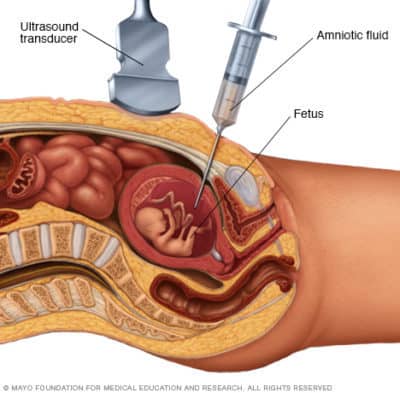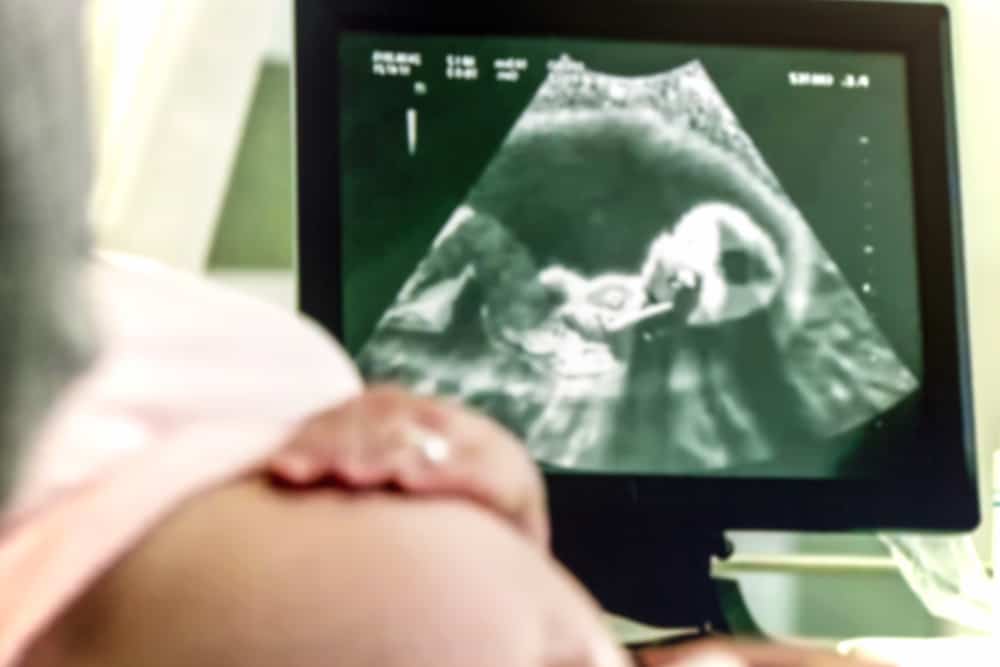Contents:
- Medical Video: Amniocentesis (Amniotic Fluid Test)
- What is an amniocentesis test?
- Who has to undergo an amniocentesis test?
- What are the benefits of the amniocentesis test?
- Some risks that may occur from the amniocentesis test
- 1. The membranes leak
- 2. Infection
- 3. Injury to the needle on the baby's body
- 4. Rh Sensitization
- 5. Miscarriage
Medical Video: Amniocentesis (Amniotic Fluid Test)
The amniocentesis test is an examination of amniotic fluid that is performed to detect chromosomal abnormalities and genetic abnormalities in infants. Not all pregnant women are obliged to live it, because the amniocentesis test is intended for those who have high-risk pregnancies. How is this test done, and what are the benefits and risks? Find out the answer here.
What is an amniocentesis test?

The amniocentesis test is done by taking a sample of amniotic water through a needle that is injected into the mother's stomach.In the process, the doctor will place the needle in the right position with the help of ultrasoundavoid wrong injection of the placenta.
Amniotic fluid is the water that surrounds the baby in the womb.This liquid contains dead baby skin cells,protein called alpha-fetoprotein (AFP), various kinds of electrolytes from the mother (such as sodium and potassium), to the urine of the baby.
Amniotic fluid that has been taken is then taken to the laboratory for further investigation. Damage to the amniotic fluid or the presence of certain foreign particles in your amniotic sample can indicate a serious health condition.
Who has to undergo an amniocentesis test?
Not all pregnant women need this test. Amniocentesis tests specifically are intended for pregnant women aged 35 years and over who are at high risk of genetic disorders and / or chromosome problems causing birth defects such as spina bifida, Down syndrome, and anencephaly.
Besides, ifdoctors find things that are abnormal in your routine ultrasound results but cannot know clearly what the exact cause is, then chances are that your doctor will recommend you undergo amniocentesis.
Amniocentesis teststart can be done at 11 weeks of gestation. But for genetic testing, new amniocentesis can be done in pregnancies that are aged 15 to 17 weeks, and in the third trimester of pregnancy when the lungs of the fetus are mature to detect infection in the amniotic fluid.
What are the benefits of the amniocentesis test?
The amniocentesis test is an examination of the amniotic fluid that aims to detect the risk of chromosomal abnormalities and genetic abnormalities in infants. Amniocentesis can also be a way to treat the condition of excess amniotic fluid called polyhydramnios.
In addition, this one pregnancy check can be used to check whether the baby's lungs have developed and are fully formed before birth. Lung examination through amniocentesis is usually done in the third trimester of pregnancy.
Sometimes, amniocentesis is used to see whether a baby in the womb has an infection or not. This procedure is also done to find out the severity of anemia in infants who have Rh sensitization or when the mother's immune system forms antibodies to fight Rh + baby red blood cells.
Amniocentesis can detect some diseases that are inherited in the womb, when parents (either one or both) have risk factors for Down syndrome, sickle cell anemia, cystic fibrosis and muscular dystrophy.
Some risks that may occur from the amniocentesis test
Although it is considered useful for detecting a variety of problems that may occur in a womb, this test also has several possible risks, such as:
1. The membranes leak
Leaking amniotic fluid is a rare risk. Even so, the liquid that comes out is usually only a little and will stop by itself within one week.
2. Infection
In rare cases, amniocentesis can trigger uterine infection. In addition, amniocentesis tests can transmit infections that you have to babies such as hepatitis C, toxoplasmosis, and HIV / AIDS.
3. Injury to the needle on the baby's body
Babies can keep moving while you are undergoing this test. So, it is not impossible if the baby's arms, legs, or other body parts approach the needle that is being stuck and finally scratched
This can cause injury to the affected part of the body, but usually only minor injuries do not harm the baby.
4. Rh Sensitization
Quite rarely this test can cause a baby's blood cells to leak into the mother's bloodstream. This allows when the mother and baby have different rhesus.
If the mother has rhesus negative while rhesus is a positive baby and the mother's body does not have antibodies to positive rhesus blood, then the doctor will inject rhesus immune globulin after the test is complete. This is done to prevent the mother's body from producing Rh antibodies that can enter through the placenta and damage the baby's red blood cells.
5. Miscarriage
Amniocentesis tests carried out in the second trimester run the risk of causing a miscarriage. Quoted from the Mayo Clinic, the study shows evidence that the risk of miscarriage increases if the test is done before a 15-week gestation.












